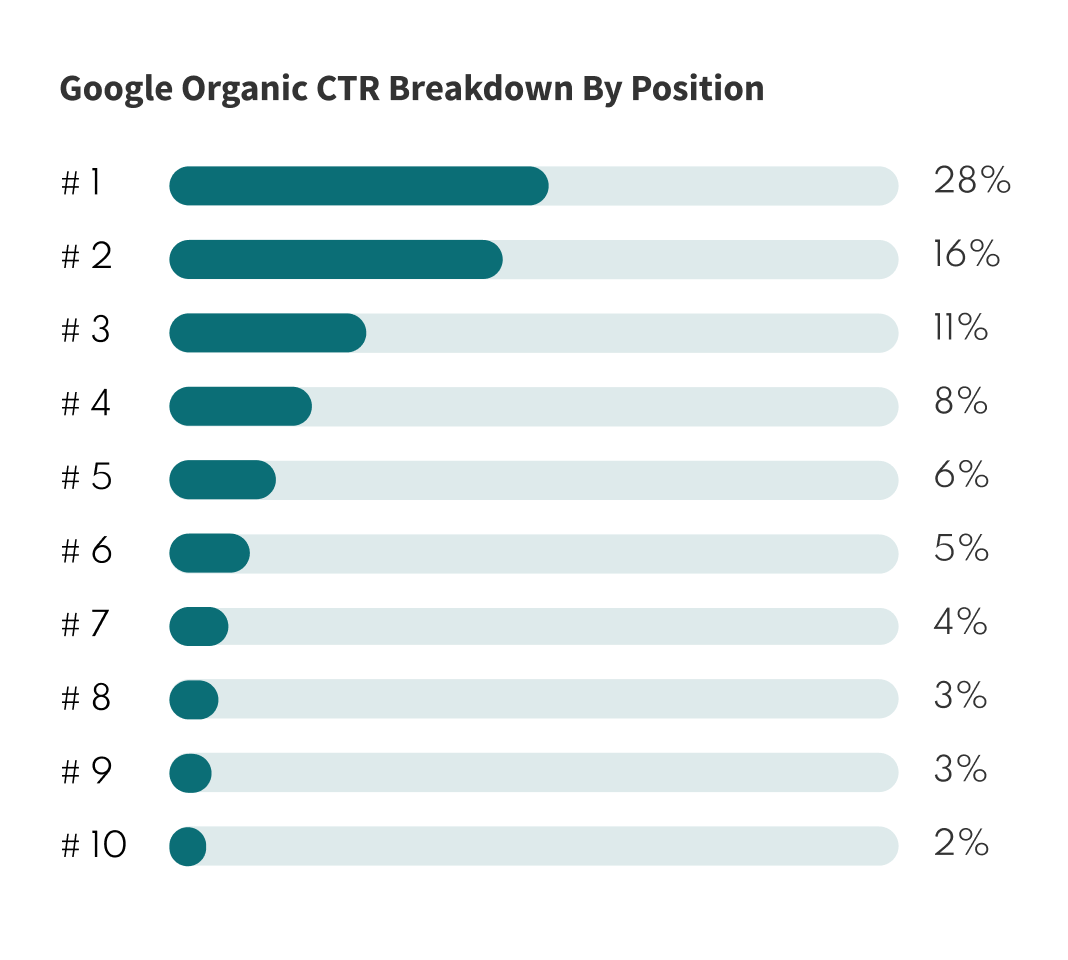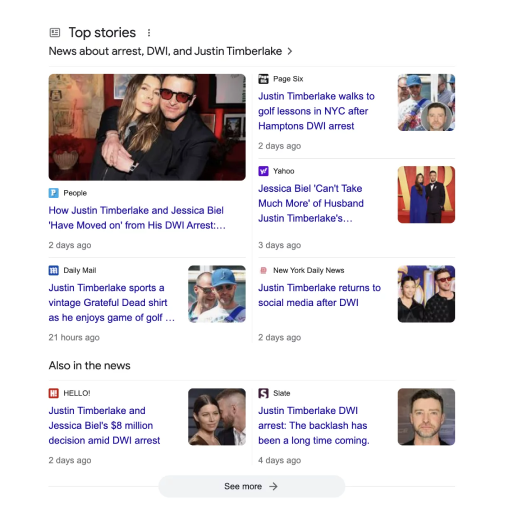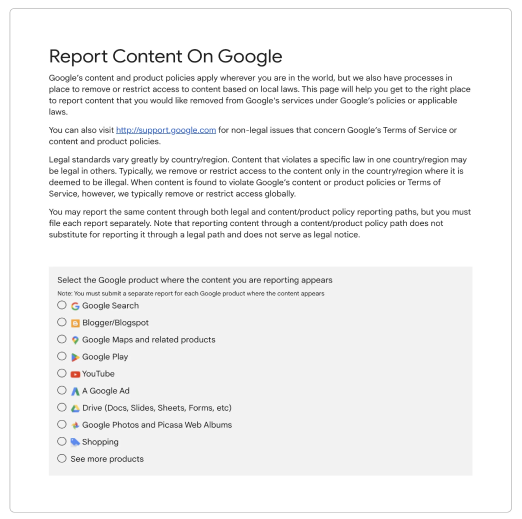I’m Ross Kernez—your trusted expert in Reputation Management for Plastic Surgeons. With over fifteen years of experience, I help board-certified surgeons and aesthetic practitioners protect their name, respond to online scrutiny, and maintain a professional digital presence that builds patient trust. My proactive strategies go beyond damage control, focusing on long-term reputation management that reflects your surgical skill, patient satisfaction, and commitment to excellence in care.
Reputation Management For Plastic Surgeons
I’m Ross Kernez, a Reputation Management Consultant with over 15 years of experience helping plastic surgeons protect their online presence and elevate their professional brand. I specialize in removing or suppressing negative reviews, outdated press, and misleading content that can deter potential patients. My approach focuses on promoting narratives that showcase your surgical expertise, patient care, and aesthetic results. In a field where trust and image directly influence patient decisions, your online reputation should reinforce your credibility—not undermine it. Let’s ensure your digital footprint reflects the precision, artistry, and integrity behind your practice.
Reputation Management For Plastic Surgeons

as seen on
We can Help You to Establish Your Online Presence or Remove Negative Search Results
Speak With an Expert
Do you need online reputation management for plastic surgeons??
| Option | Effectiveness | Cost |
| #1.Waiting For Negative Articles To Fall Off | Low | Free |
| #2.Submit a DMCA Complaint | Low | Free |
| #3. Hire a Reputation Expert ⭐️Ross Kernez | High | $$ |
| #4. Reaching Out To Journalists | Low | Free |
| #5. Explore Legal Strategies | Medium | $$$ |
| #6. Requesting an Update To a Negative Article | Low | Free |

What are Search Results?
Search results refer to the list created by search engines in response to a query. Search results can be broken down as follows:
Natural search results
(usually on the left-hand side of search engine’s results page) and;
Sponsored search results
(usually on the top and right-hand side of a search engine’s results page). Here you will see websites that have placed PAID ads within the search engine.


Who is Ross Kernez?

Why you should remove negative content online
Here’s some feedback from someone who has worked with Ross

How to suppress negative information about you in
Whether you’re battling FUD, fake reviews, or misinformation, I build a stronger online presence that reflects the integrity of your project. Let’s make sure your name—or your token—commands confidence and credibility from page one of Google.
Let's Dive Deeper on How online reputation management works for wealth managers
First, we flood Google with fresh, high-authority coverage your audience can trust—think thought-leadership columns, verified interviews, strategic press releases, and marquee collaborations on publications Google already ranks well in Search and beyond, all optimised for the search terms tied to your name. Next, we harden every digital property you own: your website, bio pages, and social profiles are tightened technically, updated often, and cross-linked so they broadcast relevance and authority. If a news article gets the facts wrong, we lodge a tactful correction with the editor; if content crosses the line into defamation or privacy abuse, we issue formal takedown or de-index requests on solid legal grounds. Finally, we keep a steady drumbeat of positive press and social engagement flowing, so fresh wins rise to the top while outdated or hostile links sink deep into the results—well past page one, where they’re all but invisible.

Because Google elevates fresh, authoritative coverage, a single negative headline from a major outlet can vault to the top of your search results—and stay there—simply by virtue of the publisher’s credibility and the story’s recency. That means every new article or broadcast mention effectively renews the shelf-life of the unfavorable narrative, forcing it back onto Page 1 each time it’s updated, syndicated, or quoted. The only reliable countermeasure is to meet Google’s relevance signals with an equally timely stream of positive, high-authority content: an exclusive interview in a respected magazine, a feature on your philanthropic work, or a verified announcement on a well-trafficked platform. By continuously injecting fresh, newsworthy material that reflects your true accomplishments, you can dilute the impact of isolated negative pieces, shift the conversation, and gradually reclaim the real estate at the top of the results page—where first impressions are formed.

Why Google Ranks News Very High in Search?
#1. Waiting For Negative Articles To Naturally Fall Off The First Page
In a competitive investment climate, waiting for negative press to fade on its own is a risk no serious blockchain project should take. If a harmful article or forum thread continues to gain engagement, its visibility won’t fade—it stays on page one, undermining investor confidence and delaying funding.
Our reputation management experts proactively protect your brand. We publish investor-friendly, trust-enhancing content in Arabic and English, fine-tune your digital footprint, and take swift action when your name surfaces in the wrong context. With constant monitoring and precision SEO, we ensure damaging narratives are buried, and your blockchain vision remains the focus.

#2. Submit a DMCA Takedown Notice on Google
When a regional news outlet or global blog republishes your proprietary content without permission, taking swift action is critical to protect your brand. Start by collecting the infringing URLs and capturing dated screenshots or archived versions that clearly show your ownership. Then, visit Google’s copyright-removal portal (support.google.com/legal/troubleshooter/1114905) and select the appropriate product—Search, YouTube, Images, and more. Fill out the form with your contact information, a detailed description of your original work, the infringing links, and a sworn statement asserting your rights. Google will evaluate your claim and may request additional documentation—so be prepared to respond promptly. Once approved, the offending URLs will be deli

#3. Hire an SEO Expert
When you partner with crypto-focused reputation strategist Ross Kernez, you gain an expert who knows how to influence search results and control the narrative in a volatile digital landscape. Ross applies a multi-layered strategy—bilingual news placements, purpose-built microsites, high-impact press releases, and synchronized social media efforts—designed to elevate your credibility while suppressing FUD, outdated articles, and hostile forum posts. Every action is custom-built: Ross audits the keywords, platforms, and publishers that shape perception in the crypto space, then powers a content engine that brings your best press forward and moves harmful links out of sight.
Outsourcing this mission isn’t just smart—it’s critical. In the 24/7 world of crypto, your name or project can trend for the wrong reasons in seconds. Reputation management here demands constant vigilance, deep SEO expertise, and messaging that aligns with both mainstream media and blockchain-native communities. With Ross managing your onli

#4. Reaching Out To Journalists
Reaching out to a journalist—or any media outlet—to address unfavorable crypto-related coverage requires tact, professionalism, and a clear, evidence-backed approach. Start by identifying the reporter and publication, then review their correction or update policies to ensure your request aligns with their editorial standards. In your personalized message (avoid templates), acknowledge the journalist’s role in fair reporting and clearly explain—supported by concise, verifiable proof—why the article is outdated, misleading, or factually incorrect. Include documentation or recent developments that reflect the full, current picture. If the facts are technically accurate but the context has shifted, consider suggesting an update that highlights recent achievements or progress. Offering an exclusive quote, interview, or dataset can turn your request into a value-added opportunity for the reporter.
Throughout the exchange, maintain a respectful and cooperative tone. Journalists are under no obligation to revise or remove content, and collaborative engagement is often more productive than confrontation. If the outreach yields no result, incorporate it into a wider crypto reputation strategy—whether that involves legal guidanc

#5. Explore Legal Avenues
Taking a publisher to court under defamation or cyber-crime laws may seem like a straightforward solution, but legal action rarely results in the clean slate most crypto founders and brands envision. Lawsuits can be expensive, drawn-out, and mentally draining—often lasting months or years with no guarantee that the harmful content will be taken down. Worse, filing a case can unintentionally reignite attention, as media outlets report on the lawsuit itself, amplifying the very content you aimed to suppress through what's known as the Streisand effect. The legal bar is high: you must prove that the statements are false, damaging, and made in bad faith—an uphill battle, especially when dealing with opinion pieces or vague allegations. Even a courtroom win can leave the article online, now accompanied by headlines about the legal dispute, and may damage future relationships with reporters who view the move as overly aggressive.
A more strategic approach for crypto companies and leaders is proactive online reputation management. By addressing inaccuracies directly with editors, publishing factual and trust-building narratives in multiple languages, and populating search results with authoritative, positive content, you can reshape public perception—quietly and effectively. This forward-thinking strategy not only protects your digital footprint today but also preserves the goodwill and press relationships

#6. Requesting an Update To An Article To Remove Negative Results
When requesting an update from a journalist covering your crypto project, lead with professionalism, transparency, and solid evidence—not confrontation. Begin your outreach by acknowledging the reporter’s role and commitment to accuracy, then present clear, verifiable proof that the article is outdated, misleading, or incomplete. Strengthen your case with updated data, recent milestones, or new context the original piece may have missed—ideally available in multiple languages for added clarity and accessibility.
Position your request as a mutual effort to maintain factual accuracy, not an attempt to suppress coverage. This collaborative tone encourages goodwill and makes it easier for the journalist to revisit and refine the story. The result is a more balanced piece that protects your reputation, enhances the outlet’s credibility, and helps shift negative search results further down the page—supporting a more favorable digital presence in the highly scrutinized crypto space.

Who We Work With
We provide search suppression services for both individuals and corporations .
Below are some of the types of clients we've been able to work with over the years:
Individuals
1. Celebrities
2. Musicians
3. Politicians
4. Authors
5. Non-public individuals
Business
1. Fortunate 500 companies
2. CEOs & executives
3. Business crises
Advanced Tracking Technology
Our tailored suppression process is supported by advanced tracking technology, specifically designed for our search suppression services. This custom-built solution enables seamless monitoring of your campaign's performance and progress.
Key features of our technology include:
Analyzing sentiment associated with search results
Providing a comprehensive sentiment score
Tracking a wide range of brand-related keywords
Monitoring search results across various locations
With our proven suppression strategies, we effectively pushed negative content off the first page of Google search results.
We can help you push down negative results and secure positive news coverage in 146 countries and 51 languages
All countries
Europe
North America
Central America
South America
Asia-Pacific
Middle East
Africa
Central Asia
Kazakhstan
Mexico
France
U.S.
Serbia
Bangladesh
Bosnia and Herzegovina
Venezuela
Pakistan
U.A.E.
Switzerland
Hungary
Turkey
Romania
India
Spain
Kyrgyzstan
Kenya
Georgia
Vietnam
Slovakia
Peru
Chile
Belgium
Indonesia
Argentina
Germany
Poland
China
Estonia
Azerbaijan
Norway
Lithuania
Nigeria
Austria
Denmark
Portugal
Canada
Italy
U.K.
Malaysia
Finland
Uzbekistan
South Africa
Croatia
Bulgaria
Czech Republic
Australia
Netherlands
Brazil
Ukraine
Moldova
Singapore
Egypt
Philippines
Latvia
Japan
Sweden
Colombia
France
Serbia
Bosnia and Herzegovina
Switzerland
Hungary
Romania
Spain
Georgia
Slovakia
Belgium
Germany
Poland
Estonia
Norway
Lithuania
Austria
Denmark
Portugal
Italy
U.K.
Finland
Croatia
Bulgaria
Czech Republic
Netherlands
Ukraine
Moldova
Latvia
Sweden
Mexico
U.S.
Canada
Venezuela
Peru
Chile
Argentina
Brazil
Colombia
Bangladesh
India
Vietnam
Indonesia
China
Malaysia
Australia
Singapore
Philippines
Japan
U.A.E.
Turkey
Azerbaijan
Egypt
Kenya
Nigeria
South Africa
Pakistan
Kyrgyzstan
Uzbekistan
FAQs
How to Suppress Unwanted News?
What is reputation management for plastic surgeons and why is it essential in today’s competitive market?
Reputation Management For Plastic Surgeons is the strategic practice of shaping how current and prospective patients perceive a surgeon’s expertise, results, and bedside manner across digital channels. Because cosmetic procedures are highly personal and elective, trust is the primary driver of conversion, and patients often rely on search results and reviews before booking a consultation. By proactively curating accurate information, highlighting success stories, and addressing concerns, surgeons create a consistent narrative that reinforces credibility. A well‑structured reputation program reduces the impact of isolated negative comments that could otherwise dominate the first page of Google. Ultimately, it safeguards revenue, attracts high‑value cases, and strengthens long‑term brand equity.
How does an online reputation affect patient acquisition for plastic surgeons?
Prospective patients typically begin their journey with a Google search, and first impressions formed online directly influence whether they schedule a consultation. Reputation Management For Plastic Surgeons ensures that glowing testimonials, authoritative articles, and before‑and‑after galleries appear prominently, signaling both skill and safety. When a surgeon’s digital footprint answers common questions and addresses fears, patients feel confident moving forward. Conversely, unresolved negative reviews or outdated information create doubt that often diverts leads to a competitor. Maintaining a robust, positive reputation therefore acts as a continuous patient‑acquisition engine.
What specific challenges do plastic surgeons face that differ from other medical specialties in reputation management?
Cosmetic outcomes are visually scrutinized, making photographic evidence and storytelling crucial components of Reputation Management For Plastic Surgeons. The elective nature of procedures also means patients feel empowered to shop around and compare reputations more critically than they might for medically necessary treatments. Surgeons must navigate strict privacy laws while showcasing transformative results, balancing transparency with confidentiality. In addition, the rise of social media “before and after” trends intensifies public judgment and can magnify even minor missteps. These unique pressures require a tailored, proactive approach that combines medical professionalism with consumer‑oriented messaging.
How can reputation management mitigate the impact of negative reviews for plastic surgeons?
A comprehensive Reputation Management For Plastic Surgeons program monitors reviews in real time, enabling swift, HIPAA‑compliant responses that demonstrate empathy and a commitment to patient satisfaction. By encouraging a steady flow of authentic positive feedback, surgeons create a numerical and narrative buffer that dilutes the weight of occasional poor ratings. Negative comments are analyzed for actionable insights, and process improvements are communicated publicly to show accountability. Where reviews violate platform guidelines or are demonstrably false, reputation specialists can petition for their removal. Over time, this concerted strategy shifts the overall sentiment trajectory back to positive territory.
What role does social media play in reputation management for plastic surgeons?
Platforms like Instagram, TikTok, and YouTube act as virtual portfolios, allowing surgeons to showcase surgical artistry and patient stories in engaging formats. Reputation Management For Plastic Surgeons leverages these channels to humanize the surgeon, educate audiences on procedures, and demonstrate safety protocols. Consistent, high‑quality content builds familiarity and positions the surgeon as a thought leader within aesthetic medicine. Rapid interaction with followers—answering questions and dispelling myths—further enhances trust. Social media analytics also provide real‑time feedback on brand sentiment, enabling timely adjustments to messaging strategy.
How can plastic surgeons ethically encourage satisfied patients to leave positive reviews?
Ethical Reputation Management For Plastic Surgeons focuses on transparent requests made at appropriate touchpoints—such as post‑operative follow‑ups—when patients are happiest with their results. Surgeons can provide streamlined links to reputable platforms and explain how reviews help future patients make informed choices. Offering educational resources rather than incentives keeps the request compliant with medical marketing regulations. Staff training ensures every team member understands patient privacy boundaries and avoids pressuring individuals. This respectful, value‑driven approach yields authentic testimonials that bolster credibility without compromising integrity.
Why is proactive reputation monitoring important for plastic surgeons?
Waiting until a crisis erupts allows negative narratives to crystallize and spread unchecked, potentially costing thousands in lost procedures. Reputation Management For Plastic Surgeons employs continuous monitoring tools that flag new mentions, allowing swift reinforcement of positives or containment of negatives. Early detection facilitates measured, professional responses before rumors gain traction. Proactive oversight also uncovers emerging patient concerns, guiding content creation that addresses those topics preemptively. In an era where information travels at the speed of a screenshot, vigilance is the cornerstone of sustained reputation health.
How can reputation management strategies help plastic surgeons comply with HIPAA and privacy regulations?
Professional Reputation Management For Plastic Surgeons intertwines marketing goals with stringent legal safeguards, ensuring patient identifiers are never disclosed without consent. Review‑response templates and staff protocols are crafted to acknowledge feedback while avoiding protected health information. Photo and testimonial releases are standardized to secure explicit permissions before publication. Secure content management workflows prevent accidental data leaks across websites and social channels. By embedding compliance into every public interaction, surgeons protect both their patients and their practice from regulatory penalties.
What types of content should plastic surgeons publish to strengthen their online reputation?
Educational blog posts that demystify procedures, high‑resolution before‑and‑after galleries, patient testimonial videos, and peer‑reviewed research summaries all serve as pillars of Reputation Management For Plastic Surgeons. Such content demonstrates expertise, showcases tangible results, and answers common patient questions, thereby reducing uncertainty. Surgeons can also share behind‑the‑scenes glimpses of surgical preparation and safety protocols to humanize their team and emphasize professionalism. Regularly updated FAQs improve search rankings while addressing evolving concerns. Together, these content formats build a multidimensional narrative that resonates with both search engines and potential patients.
How can search engine optimization integrate with reputation management for plastic surgeons?
SEO ensures that authoritative, positive assets dominate the search results pages where patients form first impressions. Reputation Management For Plastic Surgeons includes keyword‑rich articles, schema markup for reviews, and optimized image alt text so that search engines understand and promote favorable content. Technical SEO improvements—like fast page load times and mobile responsiveness—enhance user experience, which indirectly boosts reputation by reflecting operational excellence. Backlink acquisition from respected medical publications further signals credibility to algorithms. This synergy between SEO and reputation management multiplies visibility and trust.
What are the risks of ignoring reputation management for plastic surgeons?
Without a structured Reputation Management For Plastic Surgeons plan, a single viral complaint or outdated forum post can eclipse years of successful outcomes. Lost patient trust translates directly into empty consultation slots and reduced surgical volume. Negative sentiment may discourage talented staff or referring physicians from associating with the practice, compounding operational challenges. Moreover, competitors who actively manage their reputations will capture undecided prospects, widening the market gap. The financial and professional repercussions make inaction a costly gamble.
How can a plastic surgeon respond effectively to a false allegation online?
An evidence‑based approach begins with documenting the claim and preserving screenshots in case legal action becomes necessary. Reputation Management For Plastic Surgeons then crafts a measured, HIPAA‑compliant public response that corrects inaccuracies without revealing confidential details. Simultaneously, the team engages the platform’s dispute resolution process, providing proof to seek removal if the content violates terms of service. Parallel publication of positive patient experiences helps crowd out the false narrative in search results. This layered strategy neutralizes harm while reinforcing the surgeon’s commitment to transparency.
How often should a plastic surgeon audit their online presence for reputation issues?
Quarterly comprehensive audits are advisable, supplemented by real‑time alerts that flag fresh reviews or media mentions daily. Reputation Management For Plastic Surgeons involves evaluating SERP rankings, social sentiment trends, and directory accuracy at each audit cycle. These reviews reveal shifts in public perception and guide targeted corrective actions before minor issues escalate. Regular audits also identify new platforms or forums where discussions are emerging, ensuring the practice maintains coverage across the digital landscape. Consistency in auditing schedules fosters continuous improvement and operational discipline.
What metrics should plastic surgeons track to evaluate reputation management success?
Average star rating across major platforms, volume of new positive reviews per month, sentiment analysis scores, and share of voice in local search results form the quantitative backbone of Reputation Management For Plastic Surgeons. Engagement metrics—such as click‑through rates to the website from listings—illustrate how reputation translates into patient interest. Qualitative indicators, like referral patterns from satisfied patients and media inquiries, offer additional insight. Monitoring reduction in negative keyword rankings shows how effectively harmful content is being suppressed. A balanced dashboard combining these metrics informs strategic adjustments and budget allocation.
How can reputation management protect a plastic surgeon during a media crisis?
Crisis‑prepared Reputation Management For Plastic Surgeons incorporates incident‑response playbooks, designated spokespeople, and pre‑approved messaging frameworks. Immediate, transparent communication demonstrates accountability while preventing rumor escalation. Simultaneously, positive evergreen content is promoted to maintain contextual balance in search results. Media monitoring tools track coverage for rapid rebuttal or clarification opportunities. Post‑crisis analyses then refine protocols, ensuring the practice emerges with strengthened public trust.
What is the cost‑benefit analysis of investing in professional reputation management services for plastic surgeons?
Professional Reputation Management For Plastic Surgeons may involve monthly retainers, software subscriptions, or project‑based fees, but these costs are often offset by a single additional surgical booking. A strong online reputation increases patient inquiries, boosts conversion rates, and supports premium pricing power. Time savings for the surgeon and staff allow greater focus on clinical excellence. Risk mitigation against defamatory content or regulatory penalties preserves long‑term financial stability. When compared to traditional advertising spends, reputation management frequently delivers higher, more sustainable returns on investment.
How can reviews on platforms like RealSelf and Healthgrades influence a plastic surgeon’s practice?
RealSelf and Healthgrades are perceived as authoritative hubs where patients seek peer validation of surgical outcomes. Reputation Management For Plastic Surgeons ensures accurate profiles, compelling visuals, and prompt responses that elevate trust signals on these sites. High ratings improve algorithmic visibility, leading to increased profile traffic and appointment requests. Detailed patient stories provide social proof that differentiates the surgeon amid a crowded marketplace. Neglecting these platforms, however, lets detractors define the narrative unchallenged.
What legal considerations should plastic surgeons understand when addressing defamatory content?
Defamation laws require proving that statements are false, published, and damaging, so Reputation Management For Plastic Surgeons collaborates with legal counsel to gather evidence before initiating takedown or litigation. Surgeons must balance assertive defense with patient confidentiality, avoiding disclosures that could violate HIPAA. Cease‑and‑desist letters, platform appeals, or targeted litigation may be appropriate depending on severity. Transparency about legal action can reassure patients while deterring future false claims. Understanding jurisdictional nuances and statute of limitations ensures timely, effective responses.
How does reputation management intersect with brand building for a plastic surgery clinic?
A cohesive brand voice anchored in patient trust amplifies the impact of Reputation Management For Plastic Surgeons. Consistent messaging across website copy, social captions, and patient interactions nurtures recognition and loyalty. Reputation insights inform brand storytelling by highlighting unique differentiators appreciated by satisfied patients. Positive sentiment fuels shareable content that reinforces brand identity organically. Together, reputation management and branding create a virtuous cycle that magnifies market presence.
Can reputation management help plastic surgeons attract international patients?
Medical tourists heavily research qualifications, safety records, and patient experiences online before traveling. Reputation Management For Plastic Surgeons provides multilingual content, showcases internationally recognized certifications, and highlights post‑operative care plans to meet these needs. High search rankings and positive reviews in target regions reduce perceived risk for overseas patients. Social proof from previous international clients further validates the clinic’s global appeal. Effective reputation strategies therefore expand the surgeon’s reach beyond domestic boundaries.
How can before‑and‑after photo galleries be optimized as part of reputation management?
High‑resolution images organized by procedure type and patient demographics demonstrate versatility and expertise, critical elements of Reputation Management For Plastic Surgeons. Alt text descriptions incorporating relevant keywords improve SEO and accessibility. Consent forms and watermarking protect intellectual property while respecting privacy. Captions that explain surgical techniques and recovery timelines educate viewers and build confidence. Regular updates keep the gallery current, signaling ongoing excellence.
What are best practices for plastic surgeons to communicate online after a surgical complication becomes public?
Transparency tempered with compassion forms the backbone of Reputation Management For Plastic Surgeons in such scenarios. Surgeons should issue timely statements acknowledging patient concerns and outlining corrective steps without disclosing protected health information. Educational content explaining complication rates and safety protocols contextualizes the event. Consistent updates as the situation evolves demonstrate accountability and empathy. Post‑incident reviews of internal processes further reinforce a culture of continuous improvement.
How can plastic surgeons use patient testimonials while respecting privacy laws?
Written and video testimonials must be obtained through documented consent that specifies the scope of use, satisfying HIPAA and state regulations. Reputation Management For Plastic Surgeons anonymizes details where necessary and allows patients to review final content before publication. Testimonials are distributed across websites, social media, and third‑party review platforms to maximize reach. Accompanying context—such as the patient’s goals and outcome—adds authenticity and educational value. Regular audits ensure ongoing compliance as laws evolve.
How long does it take to see measurable results from reputation management efforts for plastic surgeons?
Results depend on starting reputation, competitive landscape, and resource allocation, but most Reputation Management For Plastic Surgeons campaigns begin showing improvements in search sentiment and review volume within three to six months. Quick wins often come from claiming and optimizing existing profiles, which can boost visibility almost immediately. Suppressive strategies targeting negative content may take longer as search algorithms re‑index pages. Continuous content creation compounds gains over time, leading to substantial brand lift within a year. Consistent effort is essential for sustaining and amplifying early progress.
What are common misconceptions about reputation management for plastic surgeons?
Some believe Reputation Management For Plastic Surgeons is merely about deleting negative reviews, when in fact it focuses on holistic brand narrative and patient education. Others assume it can be a one‑time fix, overlooking the need for ongoing monitoring and engagement. A misconception persists that asking for reviews is unethical, yet transparent, voluntary feedback collection is both compliant and patient‑centric. Many undervalue SEO’s role in reputation, failing to realize how visibility shapes perceptions. Dispelling these myths helps surgeons appreciate the strategic depth of effective reputation work.
How can reputation management support a plastic surgeon in expanding into non‑surgical aesthetic services?
Introducing injectables or skin treatments requires repositioning the practice without diluting core surgical expertise. Reputation Management For Plastic Surgeons crafts messaging that highlights the surgeon’s anatomical knowledge and precision, reassuring patients about the quality of new offerings. Positive case studies and cross‑promoted testimonials bridge trust between surgical and non‑surgical audiences. SEO‑optimized service pages capture search demand for minimally invasive procedures. This integrated approach accelerates adoption of new revenue streams.
Why is consistency in messaging important for plastic surgeons’ online reputation?
Patients encounter a practice through multiple touchpoints—Google listings, social media, press articles—and inconsistencies erode trust. Reputation Management For Plastic Surgeons enforces brand guidelines so that tone, claims, and visuals align across channels. Consistent messaging reinforces key differentiators like board certification and safety protocols. It also reduces legal risk by preventing contradictory statements about outcomes or pricing. Uniformity therefore converts curiosity into confidence and consultations.
How can plastic surgeons leverage influencer partnerships as part of a reputation management strategy?
Collaborating with credible beauty or wellness influencers introduces the practice to engaged audiences seeking aesthetic solutions. Reputation Management For Plastic Surgeons vets partners for alignment with brand values and compliance readiness. Authentic content—such as live procedure walkthroughs or recovery diaries—provides social proof while demystifying services. Clear disclosure of partnerships maintains transparency and adheres to advertising standards. When executed thoughtfully, influencer collaborations amplify reach and enhance perceived authority.
What should plastic surgeons look for when selecting a reputation management vendor?
Experience in healthcare marketing, proven success metrics, and deep knowledge of HIPAA regulations are non‑negotiable qualities for any firm offering Reputation Management For Plastic Surgeons. Vendors should provide transparent reporting dashboards and customizable strategies rather than one‑size‑fits‑all packages. Integration capabilities with existing CRM and review platforms streamline workflows and enhance data accuracy. A consultative approach that includes crisis preparedness reflects mature expertise. Client testimonials and case studies add further validation.
How can reputation management prepare a plastic surgeon for future trends in patient engagement and technology?
As AI chatbots, teleconsultations, and augmented‑reality previews become mainstream, patients will demand seamless digital experiences. Reputation Management For Plastic Surgeons anticipates these shifts by optimizing online assets for voice search, integrating virtual consultations, and showcasing tech‑forward capabilities in content. Staying ahead of privacy regulations regarding biometric data also protects the practice’s evolving reputation. Forward‑looking analytics guide investments in platforms where future patients are likely to gather. Embracing innovation through a reputation lens positions surgeons as industry leaders ready for tomorrow.
